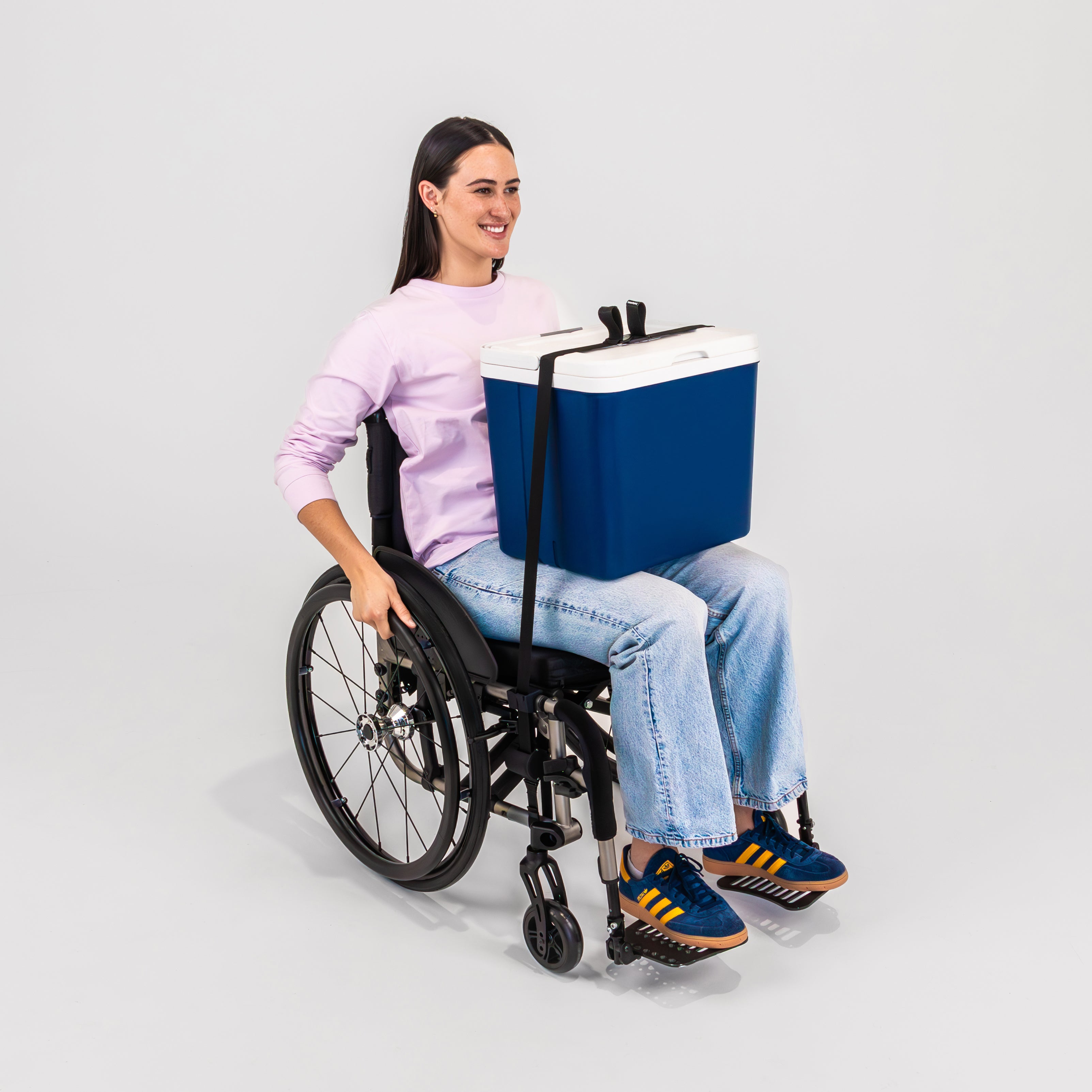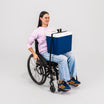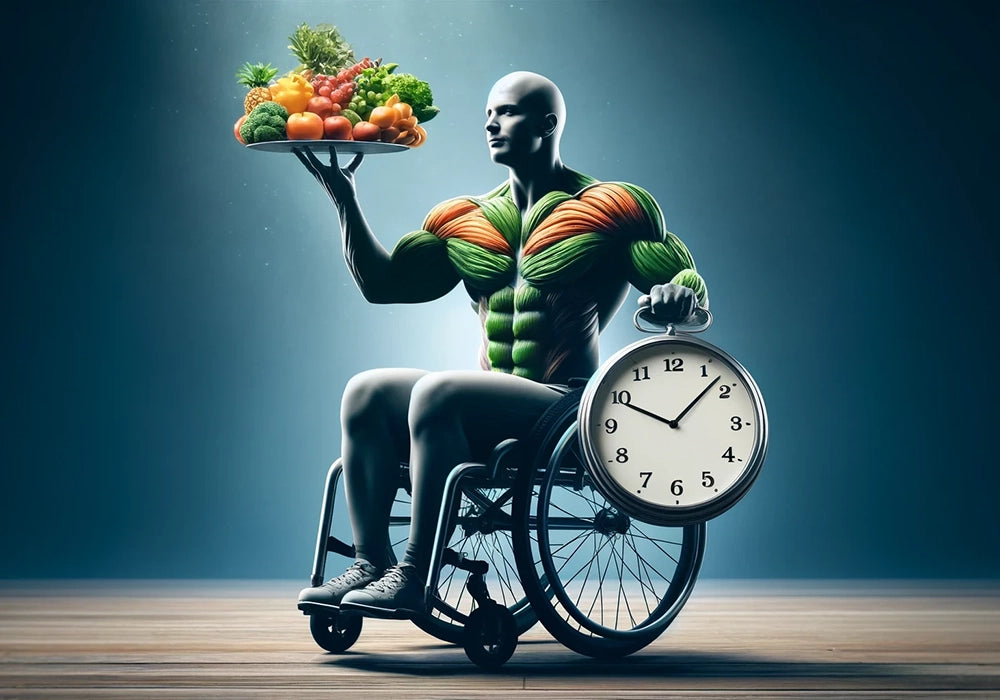In my quest for optimal health to offset the disadvantages of being a paraplegic and wheelchair user I came across intermittent fasting (IF) as a way to manage my weight, improve my overall energy levels, save time and maybe even increase my lifespan - read on to learn about seven transformative health benefits of intermittent fasting.
1. Weight management mastery.
For wheelchair users, maintaining a healthy weight is crucial for ease of mobility, reducing the strain on the upper body, and preventing pressure sores. Intermittent fasting simplifies calorie control without the need for complicated diets. By naturally reducing calorie intake during fasting periods, it promotes fat loss while preserving muscle mass, essential for those relying on their upper body for wheelchair propulsion and transfers.
2. Boosted insulin sensitivity.
Wheelchair users often face an increased risk of type 2 diabetes due to reduced physical activity. Intermittent fasting shines as a beacon of hope, enhancing insulin sensitivity. This improvement means the body can manage blood sugar more effectively, reducing the risk of diabetes and supporting stable energy levels throughout the day—vital for the active lifestyle of a wheelchair user.
3. Heart health.
Cardiovascular health is paramount for everyone, but wheelchair users must pay extra attention due to increased risk factors associated with physical inactivity. Intermittent fasting has been linked to improved heart health markers, including reduced blood pressure, cholesterol levels, and inflammatory markers. These benefits contribute to a stronger heart and vascular system, empowering wheelchair users to push boundaries both physically and mentally.
4. Cognitive clarity and neuroprotection.
The brain benefits of intermittent fasting are nothing short of remarkable. From enhancing mental clarity to potentially reducing the risk of neurodegenerative diseases, the cognitive perks of IF are especially relevant for those leading a wheelchair-bound lifestyle. The boost in brain-derived neurotrophic factor (BDNF) encourages neuronal growth and protection, offering a shield against cognitive decline and bolstering mental resilience.
5. The autophagy advantage.
Autophagy, the body's way of cleaning out damaged cells to regenerate newer, healthier cells, is significantly increased during periods of fasting. For wheelchair users, this cellular housekeeping means better muscle and tissue health, crucial for those dependent on their upper body strength and mobility. The process not only aids in repairing the wear and tear from daily wheelchair use but also supports longevity and quality of life.
6. Simplified lifestyle and time management.
The simplicity and flexibility of intermittent fasting fit seamlessly into the lifestyle of wheelchair users. With less time required for meal prep and eating, more time can be devoted to pursuits that enhance quality of life, be it work, leisure, or physical therapy. This streamlined approach to nutrition can significantly ease the daily routine, providing more freedom and control over one's schedule.
7. Enhanced physical performance and recovery.
The increase in human growth hormone (HGH) levels during fasting periods is a boon for muscle maintenance and recovery. For active wheelchair users, this means improved performance, whether in daily activities or athletic pursuits, and faster recovery times, keeping them at the top of their game.
Don't take my word for it - hear it from some experts.
In episode #41 of the Huberman Lab Podcast, Dr. Andrew Huberman talks about how fasting and eating at specific times can really change your health. He’s a big brain at Stanford, but don’t worry, he keeps things easy to understand. This chat is all about how these eating habits can help you lose weight, keep your muscles, and even make you feel better in your mind and body. Dr. Huberman digs into the science behind it all but in a way that anyone can get. If you're curious about fasting or just want to know more about eating right for your health, this episode has got some cool insights and tips. It's a must-listen for anyone looking to improve their health game with some food tips backed by science.
Also this:
Embracing the journey.
Integrating intermittent fasting into my lifestyle has proven to be an effective way to claw back some of the energy and time that was taken from me after I became a paraplegic. By embracing this approach, I've been able to keep my weight down, simplify my life, feel mentally clear and energized and I may even live longer!
Have you tried intermittent fasting? Do you like it? What other life hacks have worked for you? Please leave a comment below.
[Yes, the image was created using AI, what do you think?]










1 comment
Marinda Jones
Yes, done intermittent fasting for years, mainly because I’m not a breakfast eater but it is what works for Me. As well as drinking a large glass of warm water and a green tea every morning.
Leave a comment
All comments are moderated before being published.
This site is protected by hCaptcha and the hCaptcha Privacy Policy and Terms of Service apply.